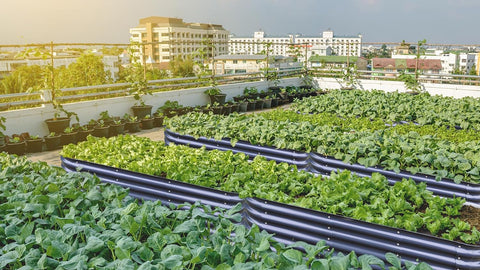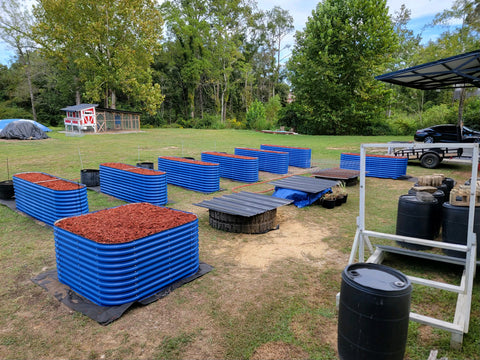Diving into the Depths: The Pros and Cons of Adding a Fish Pond to Your Garden
Adding a fish pond to your garden can transform your outdoor space into a serene oasis, providing a unique and tranquil ambiance. However, like any garden feature, fish ponds come with their own set of advantages and disadvantages. In this article, we'll explore the pros and cons of incorporating a fish pond into your garden.The following content also has some reference value for raised garden beds.
Pros:
Aesthetic Appeal:
- One of the primary benefits of having a fish pond in your garden is the visual appeal it brings. The shimmering water, colorful fish, and aquatic plants create a picturesque scene that enhances the overall aesthetics of your outdoor space.
Relaxation and Serenity:
- The gentle sound of flowing water and the rhythmic movements of fish can have a calming effect, turning your garden into a peaceful retreat. A fish pond provides a tranquil environment where you can unwind and escape from the stresses of everyday life.
Biodiversity and Ecosystem:
- A well-maintained fish pond can support a diverse ecosystem. Fish, aquatic plants, and other pond inhabitants contribute to the overall biodiversity of your garden. This can attract beneficial insects and wildlife, fostering a healthier environment.
Educational Value:
- A fish pond can serve as an educational tool, especially for children. Observing the life cycle of fish, understanding aquatic ecosystems, and learning about water quality are valuable lessons that can be imparted by maintaining a pond in the garden.
Property Value Enhancement:
- A professionally designed and well-maintained fish pond can add to the overall value of your property. Potential homebuyers may find the presence of a pond as an attractive feature, contributing to the curb appeal of your home.
Cons:
Maintenance Challenges:
- Fish ponds require regular maintenance to ensure water quality, clarity, and the well-being of fish. Cleaning debris, controlling algae, and monitoring water parameters can be time-consuming tasks that may deter some
Costs of Installation and Upkeep:
- Building a fish pond involves initial costs for excavation, liners, pumps, and filters. Ongoing expenses for electricity, fish food, and potential repairs can add up. Budget considerations should be taken into account before deciding to install a fish pond.
Potential for Overpopulation:
- Without proper planning and management, fish ponds can become overcrowded, leading to issues such as stunted growth, decreased water quality, and increased susceptibility to diseases. Regular monitoring and responsible fish stocking are essential to prevent overpopulation.
Risk of Predators:
- Depending on your location, your fish pond may attract unwanted attention from predators such as birds, raccoons, or even neighborhood cats. This poses a risk to the fish population, requiring protective measures like netting or decoys.
Water Usage and Environmental Impact:
- Maintaining the water levels in a fish pond may require additional water usage, especially in dry climates. This can be a concern in regions facing water scarcity. Additionally, improper disposal of pond water can introduce non-native species to local water bodies, posing environmental risks.
Conclusion:
Incorporating a fish pond into your garden can be a rewarding endeavor, offering numerous benefits for aesthetics, relaxation, and biodiversity. However, it's crucial to weigh these advantages against the potential challenges, including maintenance, costs, and environmental considerations. By carefully considering the pros and cons, you can make an informed decision about whether a fish pond is the right addition to your garden oasis.


